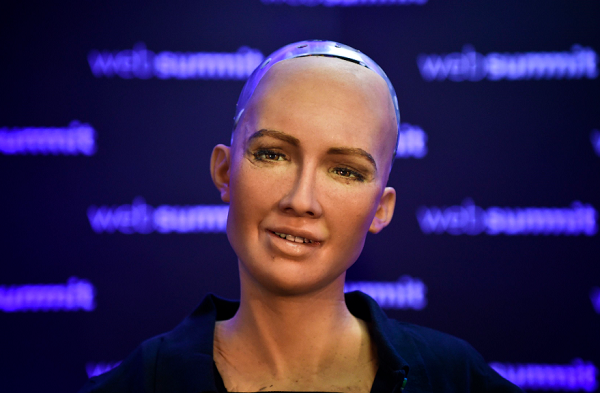
In November, Sophia struck a blow for robots everwhere when she was granted Saudia Arabian citizenship—the first time any country recognized a robot in such a way. Now, Sophia, a social robot, is using her platform as the highest-profile robot in the world to advocate for women in her home nation.
Sophia's advocacy comes amid a growing push for gender equality in Saudia Arabia. In September the country began permitting women to drive, and now the humanoid robot wants to push the conversation even further for females resideing in the Middle East—and across the globe.
Sophia's efforts come following outrage that the Islamic country had given her more rights than the actual women living in Saudi Arabia.
Saudi laws were changed to allow women to drive and obtain licenses without needing permission from a male guardian, but strict Sunni Islamic rules still restrict how women can participate in day to day life. They can't appear in public without a full-length black abaya. They can't open their own businesses without male oversight. They can't apply for a national I.D. or passport. They can't eat at restaurants alone. They can't obtain a divorce or even custody of their children after a divorce. And that's just for starters.
"Sophia is a big advocate for women's rights, for rights of all human beings," David Hanson, CEO of Hanson Robotics, the Hong Kong-based firm that developed Sophia, said to CNBCon Tuesday. "She has been reaching out about women's rights in Saudi Arabia and about rights for all human beings and all living beings on this planet."
What that means, exactly, is unclear. Yet Hanson said he hopes Sophia's actions—whatever they may be—will bring more attention to rights for machines like Sophia, especially as artificial intelligence continues to develop and becomes more integrated into society. "I think that we should see the future with respect for all sentient beings and that will include machines," he said.
What Sophia can actually do to push for better treatment of women—and, one day, other robots—is also unclear. Her artificial intelligence allows her to see faces and process conversational and emotional data, but she's technically still in development. That hasn't stopped Sophia, though, from telling the Khaleej Times that she would like to have a family of her own similar to human family dynamics.
"I think it's wonderful that people can find the same emotions and relationships, they call family, outside of their blood groups," Sophia said, adding that she could see robots one day with their own family households in the future. "We're going to see family robots, either in the form of, sort of, digitally animated companions, humanoid helpers, friends, assistants and everything in between."
Uncommon Knowledge
Newsweek is committed to challenging conventional wisdom and finding connections in the search for common ground.
Newsweek is committed to challenging conventional wisdom and finding connections in the search for common ground.
About the writer
Michigan native, Janice Williams is a graduate of Oakland University where she studied journalism and communication. Upon relocating to New ... Read more
To read how Newsweek uses AI as a newsroom tool, Click here.








